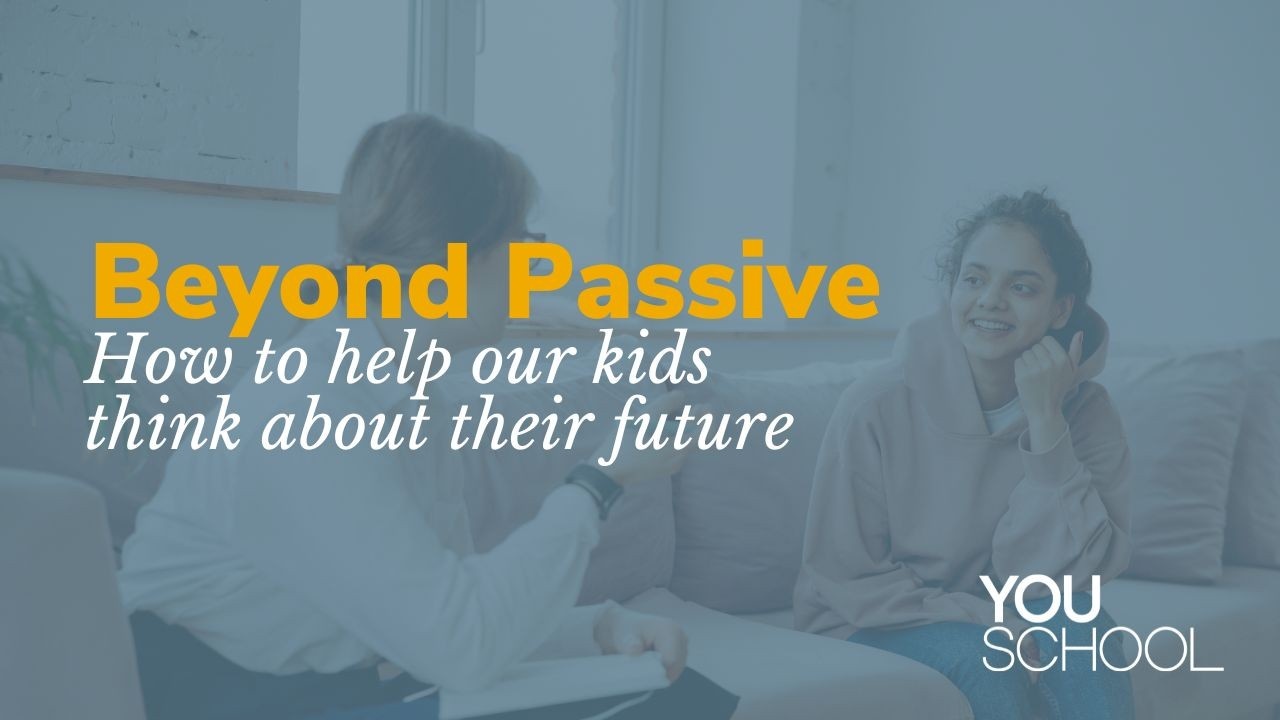How to Help Our Kids Think About Their Future

As I look back at my teenage years, I can't remember more than a couple of conversations I had with my parents about my future plans. I'm sure there were more; I just don't remember them. But the message was loud and clear: enter a career field that would be respectable (by my family and surrounding community), stable, and financially secure. Work hard, and provide for your family.
Besides those core messages, I was more or less on my own to figure things out. At school, we took a career assessment in homeroom, and the results aligned with what I had already said I would go into: corporate finance (I gamed the results). But I never met with a counselor or talked with a teacher about the future. I didn't have an aunt or an uncle pull me aside for a deeper conversation. There was no curriculum I had to complete that would help me explore the type of person I wanted to become.
The lesson I learned in a high-achieving high school and successful community was to put my head down, work hard, go to a good college and get a good-paying job. Ironically, one of the main reasons we started the YouSchool in the first place was after hearing so many successful company leaders share how miserable or lost they were in life.
Fortunately, I had an older sister and learned from watching her. She spent a lot of energy and effort through high school and college pursuing a career field that was competitive and intense (medicine). To avoid that stress, uncertainty, and strife, I declared at a young age that I would go into finance or accounting.
(Here's my life hack to kids with stressed-out parents: the most effective way to get adults off your back from stressing you out about your future is to declare your intentions to enter a boring yet lucrative career field.)
THE MISTAKE
One of the biggest mistakes I'm prone to make now as a parent is similar to what I missed out on when I grew up: being passive in my kids' discovery process. But why?
Passive Trust—On the one hand, I trust they will 'figure it all out' eventually. There's no rush to figure yourself out, right?
Generational Modeling—On the other hand, I didn't get much help, so why should they?
Avoidant—Mostly, I don't want to put undue pressure on my kids. I don't want them to feel anxious if they don't need to.
It’s not that I don’t care about their future, because of course I do. But, the anxiety their future success or failure brings up in me makes me feel uncomfortable. I typically avoid dwelling on something that might go wrong. So, I shrug my shoulders. Or change the subject. Or try a little Jedi mind trick and say, “Don’t worry—you’ll figure it out someday.”
Our kids don’t need us to be passive observers; they need us with them in the process.
Even more than with them, they need to be guided through a series of conversations and questions to consider. They need to be exposed to opportunities, career fields, and lifestyles that might resonate with them.
Even more than waiting until they ask, take the initiative to guide them through a series of the right questions to ponder. Bring up the subject repeatedly, letting them know how important it is to reflect on the big questions in life and talk about them with people you trust.
Most importantly, when our kids ask us sincere questions about their future, don’t be passive. Help them! Put your phone down, turn towards them, and get fully present. Read their expression, dig a little deeper for what’s motivating them to think about it, and ask a bunch of questions.
P.S. What if there was a way to get the best resources to impact the kids in your life—delivered to you at the right time?
Check out our memberships for parents and educators.
